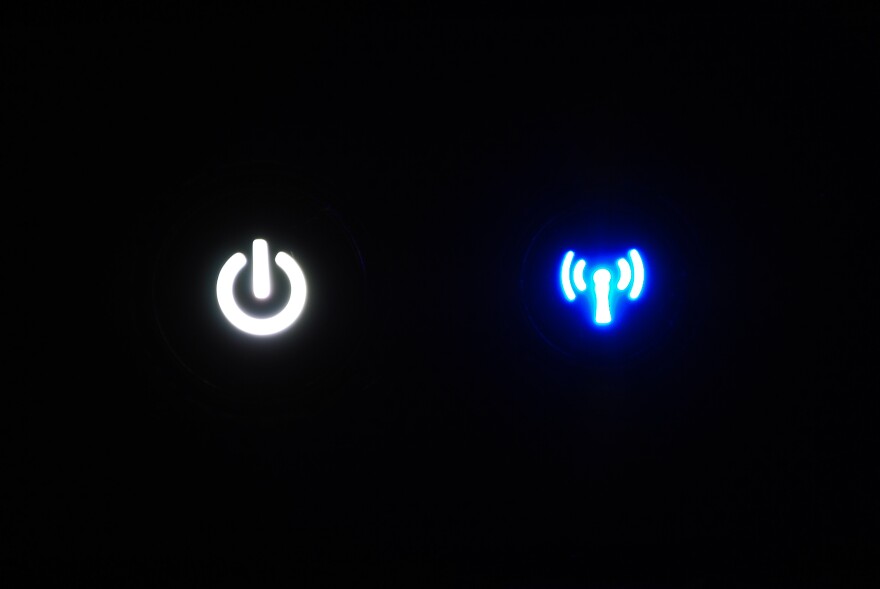Comcast announced Tuesday that it will double connection speeds for Internet Essentials, a discounted package that has served as a portal to education and work for many low-income families throughout the coronavirus pandemic.
The company’s decision comes after months of fierce lobbying from student advocates in Baltimore and throughout the nation who said the program’s internet speeds were not strong or stable enough to facilitate online learning.
“For families like mine, Internet Essentials has simply not been adequate for students to stay online,” Kimberly Vasquez, a senior at City College High School, said. “We are thrilled to hear they finally listened and doubled their speeds.”
Internet Essentials provides households that qualify for public assistance programs, such as the National School Lunch Program, in-home WiFi for $9.95 a month. In March, the program’s download speed will increase from 25 Mbps (megabits per second) to 50 Mbps and the upload speed from 3 Mbps to 5 Mbps.
Comcast estimates that about one out of every six Baltimoreans receives their internet through the program.
Vasquez, along with Students Organizing a Multicultural Open Society (SOMOS), have waged a campaign against the company since the pandemic first hit, arguing that Internet Essentials households have had to contend with WiFi connections that lag and drop during multiple video calls, interfering with their education.
Each morning since city schools went online last spring, Vasquez’s family examines her and her sisters’ video class timetables to eke out individually scheduled times to connect to WiFi. Even with only one person attempting to connect to the internet, she said, her online video instruction is often choppy.
“My sisters and I shouldn't have to choose who's going to sacrifice their education and fall behind for one of us to succeed,” Vasquez said. “We are having to decide whose education is more important.”
Zeke Cohen, a Baltimore City councilman and former teacher, said Comcast’s decision was the result of the tireless organizing of students, teachers, and everyday Baltimoreans.
“Baltimore’s children forced a multibillion dollar corporation to respect their right to a public education,” he wrote on Twitter.
Last week, Cohen and fellow councilmen Ryan Dorsey and Kristerfer Burnett asked Attorney General Brian Frosh to investigate Comcast for price gouging. Along with the Baltimore Digital Equity Coalition, the Democrats said the company’s fees bar a significant portion of the city’s low-income, Black and Latino communities from internet connectivity, resulting in “digital redlining.”
Comcast announced the bolstered Internet Essentials speeds in a package of updates tied to the digital divide.
“We have a unique opportunity to provide meaningful connection to the communities we serve – whether that’s through access to the Internet, programs to support creativity and digital literacy and skills training for young people, or workforce development opportunities for adults,” Dave Watson, President and Chief Executive Officer of Comcast Cable, said in a statement. “Our commitment has never been stronger, and we are dedicated to leveling the playing field and making a lasting impact for generations to come.”
Since last year, the company has committed more than $40 million to equity-focused partners, including Coded by Kids and the Center for Black Innovation. On Tuesday, the company pledged an additional $3.5 million to partners that help people of color access education and workforce development skills.
Comcast also said it was on target to hit its goal of creating 1,000 free WiFi access points in places where students get online, participate in distance learning or do their schoolwork, such as schools, by the end of this year. The company said it has launched several hundred “Lift Zones” so far.
Lisabeth Marziello, the President and CEO of the Boys & Girls Clubs of Philadelphia, said Lift Zones installed at her organization’s centers have made a difference for students.
“Many of the kids who come to our clubs either don’t have the Internet at home or they have it, but they can’t study at home for a variety of reasons and they need somewhere to go,” Marziello said.





